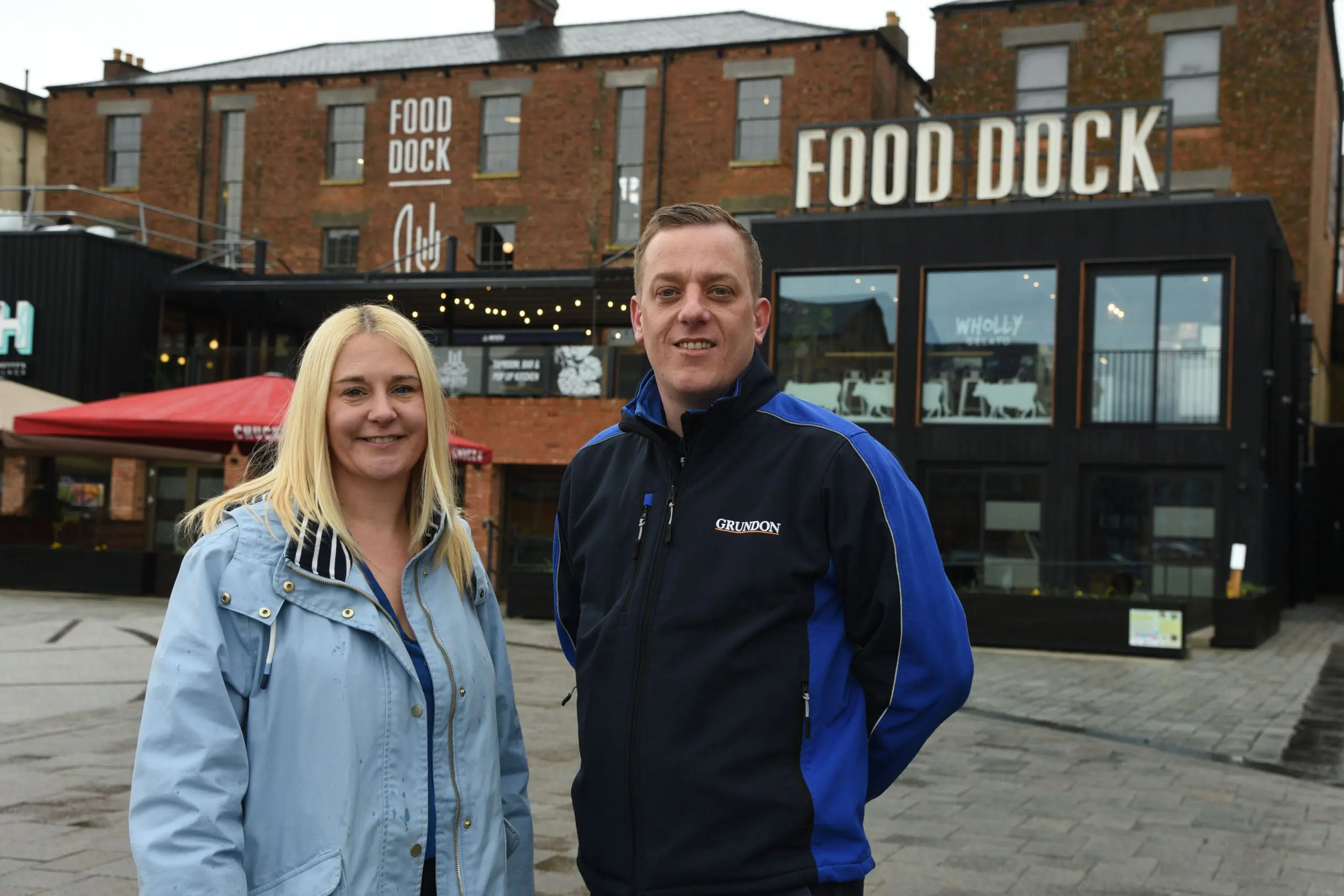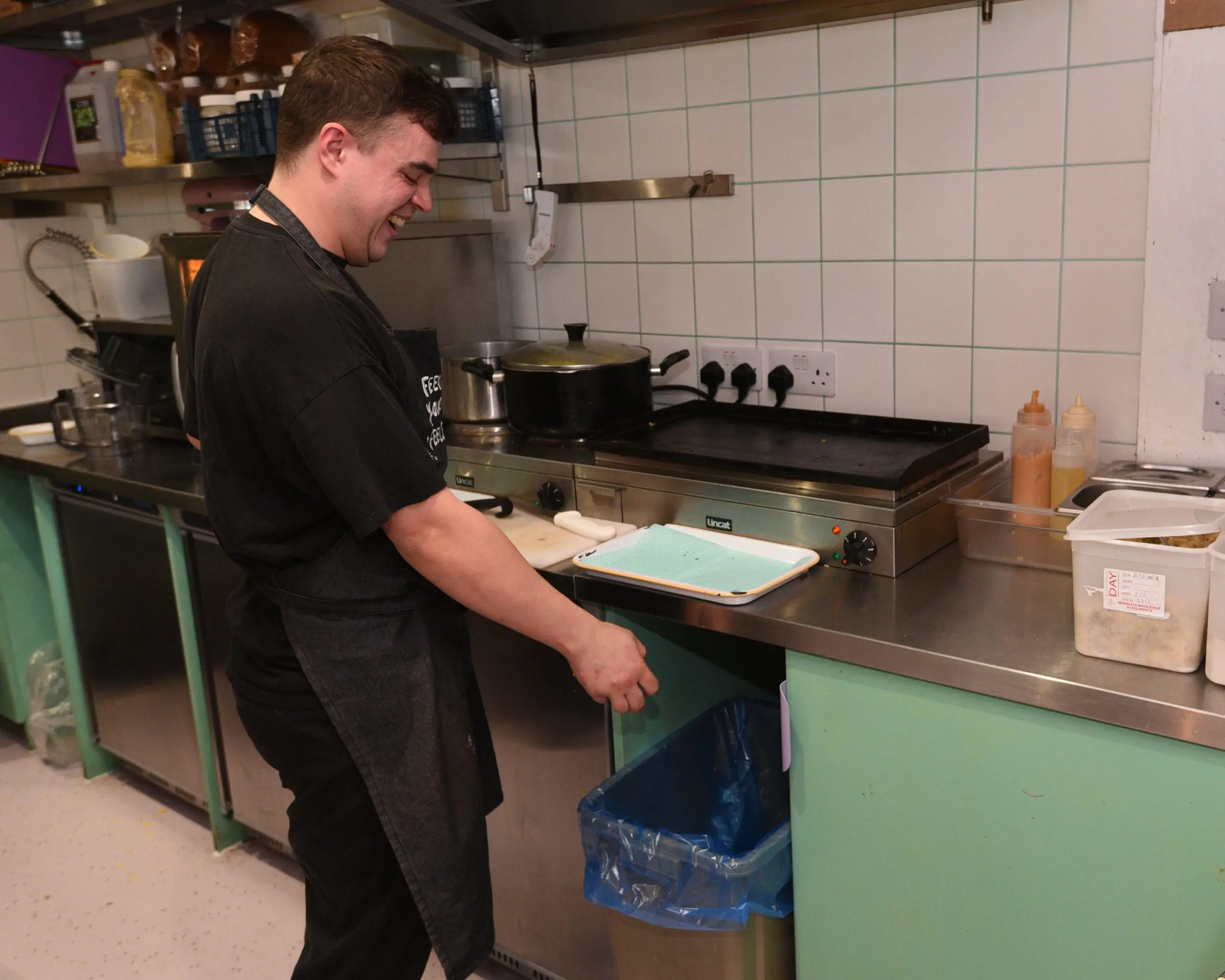The general manager of a dockside hub of nine independent food businesses in Gloucester has appointed Grundon to be its waste management partner.
Following conversations with the docks management company, Gloucester Food Dock has allocated a small area alongside its footprint on Commercial Road to serve as a bin compound.
Grundon will now provide the consortium of businesses with a range of waste collection services including general waste, mixed recycling, food waste recycling and glass recycling.

The premium on space demanded an innovative solution designed by Grundon’s Nick Malvern and Daniel Peacey.
“Our businesses are spread across four levels, with access from the quayside and Commercial Road, as well as a newly built deck level looking across the basin,” said Kyla Hyett, general manager at the Gloucester Food Dock.
“Right from the start, it has been really important for us to minimise the waste to landfill and maximise recycling. Because we have very little space, combined with steep staircases, we knew we needed a waste supplier that could bring innovative ideas and look at things a bit differently.”
Kyla Hyett
General Manager, Gloucester Food Dock
“As new members arrive here – we have more openings due this spring and summer – it’s important that they all understand about correct waste disposal and what happens to the waste when it leaves the premises.
“Also for small businesses like these profit margins are extremely important and they take sustainability very seriously. So they’re interested in keep food waste to a minimum, only preparing what they need and also keeping wastage down.
Another member, Jamie Di Crescienzo from Bella Mia Pizza at No.1 explains: “We find it really simple to segregate our waste using the different coloured bags and separate bin stores for food and glass waste. Grundon have made the whole process seamless, from signing up to managing the frequency of collections. It’s fantastic to be able to keep track of the waste we are diverting from landfill, which is incredibly important to us.”
Fellow member, Will Lee from Wholly Gelato, added: “It is really important to know that our waste is handled in a sustainable manner – on the farm, we have always put sustainability and care for the environment at the heart of our agricultural practice, so it is really pleasing to continue this good work through our retail outlets.
“Most importantly, they have delivered on everything they promised – something a lot of businesses struggle to do – and they thought outside the box, coming up with different ideas that worked for our own unique situation.”
Kyla Hyett
General Manager, Gloucester Food Dock
The new relationship is announced on the day that the UK’s national Food Waste Action Week 2024 begins, promoted by campaign organisation Love Food Hate Waste. The group will be encouraging companies and retailers, as well as schools, to shift their habits to buying and selling fresh, low packaging produce.
Meanwhile new laws being introduced in April 2025 will see businesses with 10 or more employees required to separate and recycle all recyclable waste streams.
Grundon’s solution in Gloucester sees mixed recycling, such as plastics, cardboard and paper, going to its Materials Recycling Facility (MRF) for hand-sorting and recycling; and general waste is sent to Energy from Waste (EfW) facilities, where it generates electricity.
While those two waste streams are collected on a communal basis; in an alleyway area behind the building Grundon has installed separate food and glass bins, opting for easy-to-manage 120 litre food bins instead of the more traditional 240 litre containers.

Each bin is clearly labelled for the different businesses and, because every bin is weighed separately at the point of collection, members can log on to their own section of Grundon’s dedicated customer portal to see exactly how many kgs of food waste and glass they have thrown away that week. This enables them to keep track of their own waste tonnage on a regular basis, helping them to make changes if needed.
Nick said: “Because there was so little storage space, our main concern was around the logistics of where the bins could go, how we could make it easy for tenants – known as members – to deposit their waste, and how we would collect it efficiently and with minimum disturbance.
“We agreed that the smaller bins were the best option for everyone and now the members buy rolls of clear waste sacks from us, usually on a weekly basis, and use these in-house for the general waste and mixed recycling, before bringing the sacks out to the bin compound.
“Food waste goes from the kitchen into clear sacks and then into the separate bins. We have a dedicated food waste collection vehicle which jet washes the bins and replaces the liners – which is both more cost effective and more hygienic than a bin exchange.”
